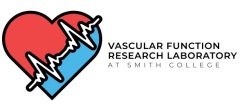Menopausal hot flashes have traditionally been considered a bothersome quality of life issue for women. However, hot flashes are now recognized to be a potential marker of disease risk. Increased frequency and severity of hot flashes have been positively associated with cardiovascular disease (CVD) risk factors, subclinical CVD markers, clinical cardiovascular events, and CVD mortality. Recent data showed that a higher frequency of hot flashes (e.g. number per day) was associated with lower vascular endothelial function in women early in the menopausal transition.
Habitual physical activity and high cardiorespiratory fitness are associated with many health benefits. However, the effectiveness of exercise to reduce hot flashes is equivocal, in part due to lack of objective assessments of hot flashes and physical activity. Further, surprisingly, the majority of the literature does not demonstrate a protective role of exercise training, habitual physical activity, or fitness on the reduction of endothelial dysfunction with menopause. These studies have not considered factors particular to midlife women, such as hot flashes, that may be associated with their vascular responsiveness to exercise. Therefore, the overall goal of this project is to determine whether habitual physical activity and exercise influence hot flash experience and whether habitual activity and hot flashes influence vascular function in peri-menopausal women.
If you are interested in learning more about this study, please email, molecularcardiolab@gmail.com.
